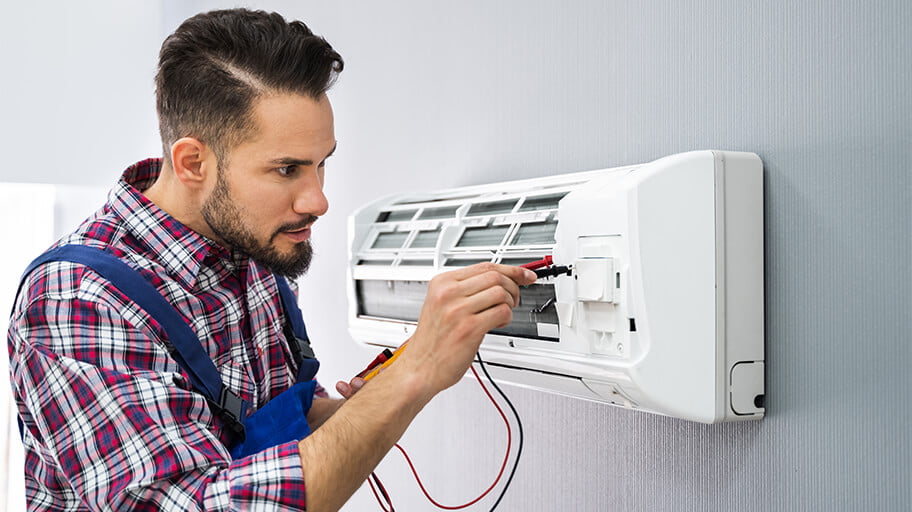DIY troubleshooting for common air conditioning problems involves cleaning or replacing filters, unclogging drain lines, and checking vents for blockages. Regular maintenance and timely repairs help ensure efficiency and prevent costly breakdowns.
Air conditioning systems are essential for keeping your home comfortable during hot months. When issues arise, they can often be fixed with a bit of troubleshooting. This guide will walk you through common AC problems, offering both detailed explanations and quick actionable steps.
Why Troubleshooting Your AC Matters
Taking time to address AC issues yourself can:
- Save on expensive repair bills.
- Prolong your system’s lifespan.
- Prevent major breakdowns during peak usage.
By resolving small problems early, you can keep your air conditioner functioning efficiently throughout the season.
Common Air Conditioning Problems and Solutions
No Cool Air
When your AC runs but doesn’t cool, it’s typically due to airflow restrictions, dirty filters, or refrigerant leaks. Start by inspecting your air filters—clogged filters are the most common cause. Replace them if they are dirty. Also, check that vents aren’t blocked by furniture or curtains.
Quick Fixes:
- Replace or clean filters monthly.
- Ensure all supply and return vents are open and unobstructed.
- If the issue persists, contact a technician to check refrigerant levels.
For detailed maintenance tips, visit our AC Maintenance Page.
Strange Noises
Hearing unusual noises from your air conditioner, such as banging, buzzing, or clicking? These sounds often indicate loose components or electrical issues. A buzzing noise could suggest motor or fan problems, while clicking may point to a failing relay or capacitor.
Steps to Address Noises:
- Tighten loose screws or parts if accessible.
- Turn off the unit and inspect the fan blades for obstructions.
- Call a technician for persistent or electrical-related noises.
Check our AC Repair Services for professional assistance.
Water Leaks
Water pooling around your AC often results from a clogged condensate drain line or frozen coils. This can damage your system if left unresolved.
What to Do:
- Use a wet vacuum or pipe cleaner to clear the drain line.
- Turn off the AC to allow frozen coils to thaw.
- Ensure the unit is properly leveled to prevent drainage issues.
Learn more about replacing inefficient systems at AC Installation Options.
High Energy Bills
If your energy bills have spiked, it may be due to poor system efficiency. Common causes include leaky ducts, dirty coils, or overworked components.
How to Improve Efficiency:
- Seal any visible duct leaks.
- Clean or replace dirty filters regularly.
- Schedule a professional maintenance visit annually.
To explore energy-efficient solutions, read our HVAC Efficiency Guide.
Understanding Residential and Commercial AC Systems
Residential air conditioners often experience simple issues like clogged filters or thermostat malfunctions. These are usually easy to address with regular maintenance. Commercial systems, on the other hand, are more complex and prone to airflow or electrical problems.
Residential AC:
- Common issues include dirty filters and blocked vents.
- Regular DIY checks are sufficient for upkeep.
Commercial AC:
- Requires scheduled inspections to manage large-scale airflow and system functionality.
- Professional maintenance ensures compliance and optimal performance.
Explore services tailored for businesses at Commercial HVAC Solutions.
Knowing When to Replace Your AC
If your air conditioner frequently malfunctions or is over 10–15 years old, it’s likely time for a replacement. Upgrading to a newer model with a high SEER rating improves energy efficiency and reduces operating costs.
Visit our AC Replacement Guide for tips on choosing the right unit.
Preventative Maintenance is Key
Regular maintenance ensures your air conditioner remains reliable and efficient. Cleaning filters, clearing debris around the outdoor unit, and scheduling professional tune-ups help avoid costly repairs.
Key Maintenance Tasks:
- Replace filters every 1–3 months.
- Inspect and clean outdoor units to remove dirt and leaves.
- Schedule annual professional inspections to catch potential issues early.
Learn more about the importance of upkeep in our AC Maintenance Guide.
Final Thoughts
DIY troubleshooting can resolve many common air conditioning problems, from replacing filters to unclogging drain lines. Balancing routine maintenance with professional inspections ensures your system stays efficient and reliable. For larger issues or ongoing problems, professional assistance is recommended.

